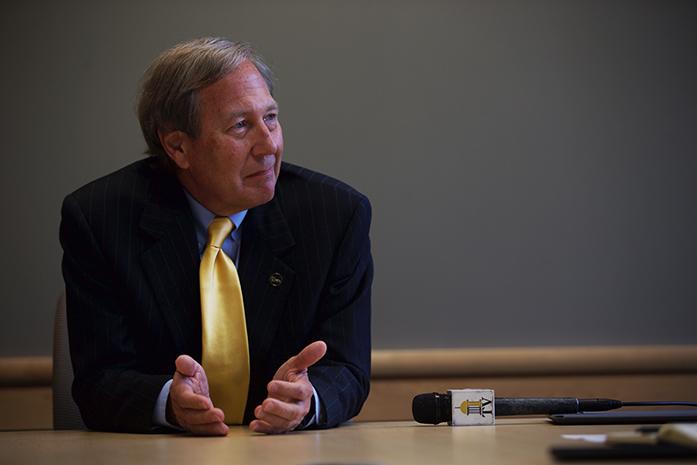Dear President Bruce Harreld,
In the “Why I Came to Iowa” letter you wrote, “If you hear something that worries you, simply ask me directly. I’ll give you an honest answer.” So, on behalf of other students, faculty and staff, let me take the liberty of asking you directly about a few critical points regarding one of the most important challenges for my generation and graduates into our global economy: sustainability and climate change. To quote Paul Pohlman, CEO of Unilever, “Capitalism is not a panacea. For those things that we find hard to put a price on — biodiversity, carbon, natural capital — the market has failed us. As a result, we live in a world where temperatures are rising, natural resources are being depleted, species loss is accelerating, and the gap between rich and poor is increasing. This is completely unsustainable.”
First, to retain the university’s position as the state’s premier academic institution and a national leader, I believe it is vital to affirm publicly your commitment to the University of Iowa’s sustainability 2020 goals. While much progress has been made towards these goals, 2020 is rapidly approaching and climate action is becoming more urgent. To maintain a leadership position, we need to identify goals for 2050 and beyond, including healthier and more local food, sustainable purchasing policies, and renewable energy on campus. As a businessman, you understand the importance of looking beyond the next few years to mitigate the documented risk that climate change and the challenges of sustainability present.
A 2011 study by your alma mater, the Harvard Business School, declared that, “Findings for an 18-year period show that High Sustainability firms dramatically outperformed the Low Sustainability ones in terms of both stock market and accounting measures.” For long-term success as a university, we must weave sustainability into our core and recognize the cost-effective and innovative opportunities from local food, zero waste, zero-impact buildings, water stewardship, and renewable energy.
Second, it is incumbent on the university to equip students to tackle the task of sustainability. During our jobs and lives, we need such knowledge to mitigate risk, innovate, create new opportunities, and provide leadership to navigate the world’s changing political, economic and social tides. There are several avenues to strengthen our education, such as course requirements, incorporating sustainability into one or more of the required general education classes, and creating experiential opportunities.
Third, former UI President Virgil Hancher, a brilliant Rhodes Scholar with 13 honorary degrees, rallied our campus in a time of crisis and war in part by tending to his own Victory Garden as an example to the campus and Iowa City. While there are many ways to demonstrate your personal commitment to sustainability, something as simple as a showcase permaculture garden on your lawn might serve as a symbol of your leadership.
You recently said sustainability must be a priority for the university and that “It’s an important issue for society, and I’m not going to duck it, we need to have a dialogue big time and get our communication and facts right.” With world political, business, and academic leaders converging on Paris, I believe the time is ripe now for that dialogue to be started. I and many other students would be more than happy to help you arrange a series of meetings with the major sustainability groups on campus to solidify a plan of action for the campus. While the University of Iowa Sustainability Charter Committee, the University of Iowa Office of Sustainability, and faculty members have reached out to start this vital dialogue, I urge you to include the voices of students in addressing the most pressing issue of the 21st century.
Sincerely,
Sophia Finster



